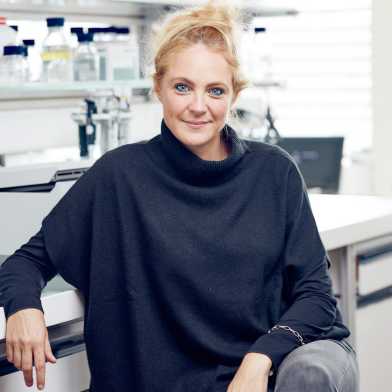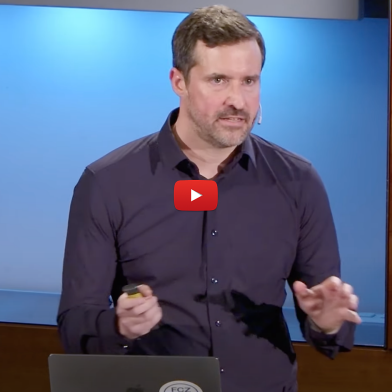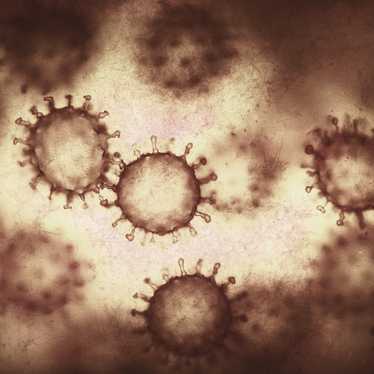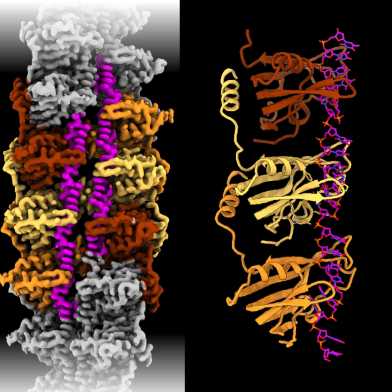News & Events
Upcoming Public Tour: Microscopy and Lab Robotics on 6 May

On 6 May, D-BSSE again opens a lab to the public: On this guided tour through the Single Cell and Lab Automation Facility you will see how tiny details in cells are visualised using state-of-the-art laser microscopes. By immersing ourselves in the fascinating world of the microcosm, we can unlock the secrets of life. We will also show you how automation is finding its way into the laboratory. Registration is open now!
SNSF Consolidator Grant for Prisca Liberali

Congratulations to Prisca Liberali, head of the Multicellular Systems Lab, on receiving the Consolidator Grant of the Swiss National Science Foundation for her research on the self-organisation of multi-cellular systems.
Public lecture on liver metastases

As part of a public event series organised by Treffpunkt Science City, Andreas Moor, head of the Systems Physiology Lab, gave a lecture on liver metastases. Researchers recently discovered how bowel cancer cells dock onto the liver: they detach from the initial tumour, enter the bloodstream and settle in the capillary network of the liver. However, the tumour cells need the support of liver cells to grow into metastases. This finding could enable new therapies to prevent tumour metastases.
New deep-learning based tool capturing combinatorial mutations in SARS-CoV-2

The emergence of SARS-CoV-2 variants such as Beta, Gamma, Delta and Omicron is a critical factor for drug development. Researchers around Sai Reddy, head of the Synthetic Immunology lab, now present a computational tool that enables the selection and focused development of lead candidates of antibodies that have the most potential to maintain activity against a rapidly mutating SARS-CoV-2. The deep learning-guided approach identifies antibodies with enhanced resistance to the evolving virus.
Unravelling the secrets of viral DNA binding

A study led by researchers from the group of SNF Ambizione Fellow Nicolas Huguenin-Dezot has found that a protein forms a chain along single-stranded DNA, aiding a bacteriophage in copying its genetic material. Using advanced structural biology, biochemical, and bioinformatics techniques, the team uncovered a previously unknown protein fold binding to DNA in a unique way. This discovery could inspire innovations in medicine and biotechnology.